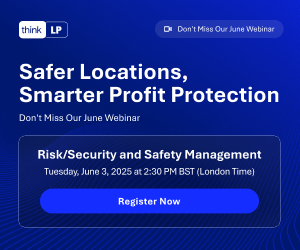industry focus
A fair way to protect golfers against fairway thieves
Post-COVID golf membership has soared to the point where waiting lists are once again part of the evergreen and manicured landscape, a total contrast to what looked like a financially precarious position prior to the pandemic.
Parallels can be drawn between the game and society as a whole because this reversal of fortunes owes much to the health attributes – mental and physical - of the great outdoors, where playing a round of golf has increased the well-being of a lockdown nation teetering between obesity and depression. Taking the analogy to the next tee, the bunkered down UK is now chipper and chipping its way out of that very bunker and onto the fairway for a clear putt at the flag of recovery.
But this success comes at a cost as thieves move in on what is now a lucrative market in stolen golf clubs which, according to the Professional Golf Association (PGA), is costing the industry £10 million per year as thieves target golf club car parks, boots of cars as well as burgling the garages of golf enthusiast for costly clubs and memorabilia which are then fenced or sold for cash.
Apart from costly insurance claims, there is the needle in a haystack problem of repatriating recovered clubs, if, and when, they are found because all too often they cannot be returned simply because there is no record of who owns them.
Now, the cost-neutral Immobilise technology first created for the mobile phone and electronics market, has been adapted for the golf market. A free-to register initiative for marked clubs using either the serial or unique product code applied at the point of manufacture – often printed on the club shaft – or applied by cost-effective security kits at store level.
Recipero, the owner of Immobilise – a finalist in the 2020 Fraud Awards Best Newcomer technology awards - has been working with golf equipment chain American Golf to educate enthusiasts into future-proofing the security on their expensive equipment.
According to Les Gray, Chief Operating Officer, the £10 million in lost golf clubs is dwarfed by the £35 million per month saved by CheckMEND, Recipero’s market tool for High Street traders that highlight whether clubs offered for sale are stolen. By preventing the clubs being sold on, the technology reduces the chances of reputational damage for the responsible retailer and switches off the revenue stream and market for opportunistic thieves.
Immobilise is the only golf equipment register linked to the Police NMPR Database, enabling recovered stolen and registered golf equipment to be identified and repatriated with its owner.
Importantly, registration deters theft, increases repatriation and may be the difference between a suspect being released by police or charged with theft.
“It’s totally transparent and allows people to register their property free of charge but also helps police forces identify the owner – importantly it helps them to do their jobs better by reuniting owners with thousands of pounds worth of stolen equipment that would otherwise end up being stockpiled in police property stores and ultimately sold off,” said Les.
“Police, who have seized items from a suspected burglar’s home but lack evidence as to who actually owns the property because it is not marked and registered, may have no choice but to give the property back to the suspect.”
American Golf’s National Loss Prevention Manager, said: “I worked with Recipero on this technology when I was in the telecommunications industry several years ago so I went back to them to see how the same principles, which were already there, could be adapted to the golf industry.
“Many golf clubs have markings on the shaft so it is a matter of getting the message out there about the free registration. In store, if there is no marking, we can also encourage customers to look at ImmobiGolf low cost marking kits. We make it obvious that the items are marked and registered so that criminals stealing from cars, houses or garages understand that the risk is on them which in many cases has the right deterrent effect.
“And if clubs are stolen, there is a greater opportunity for the owner to get their items back.”






